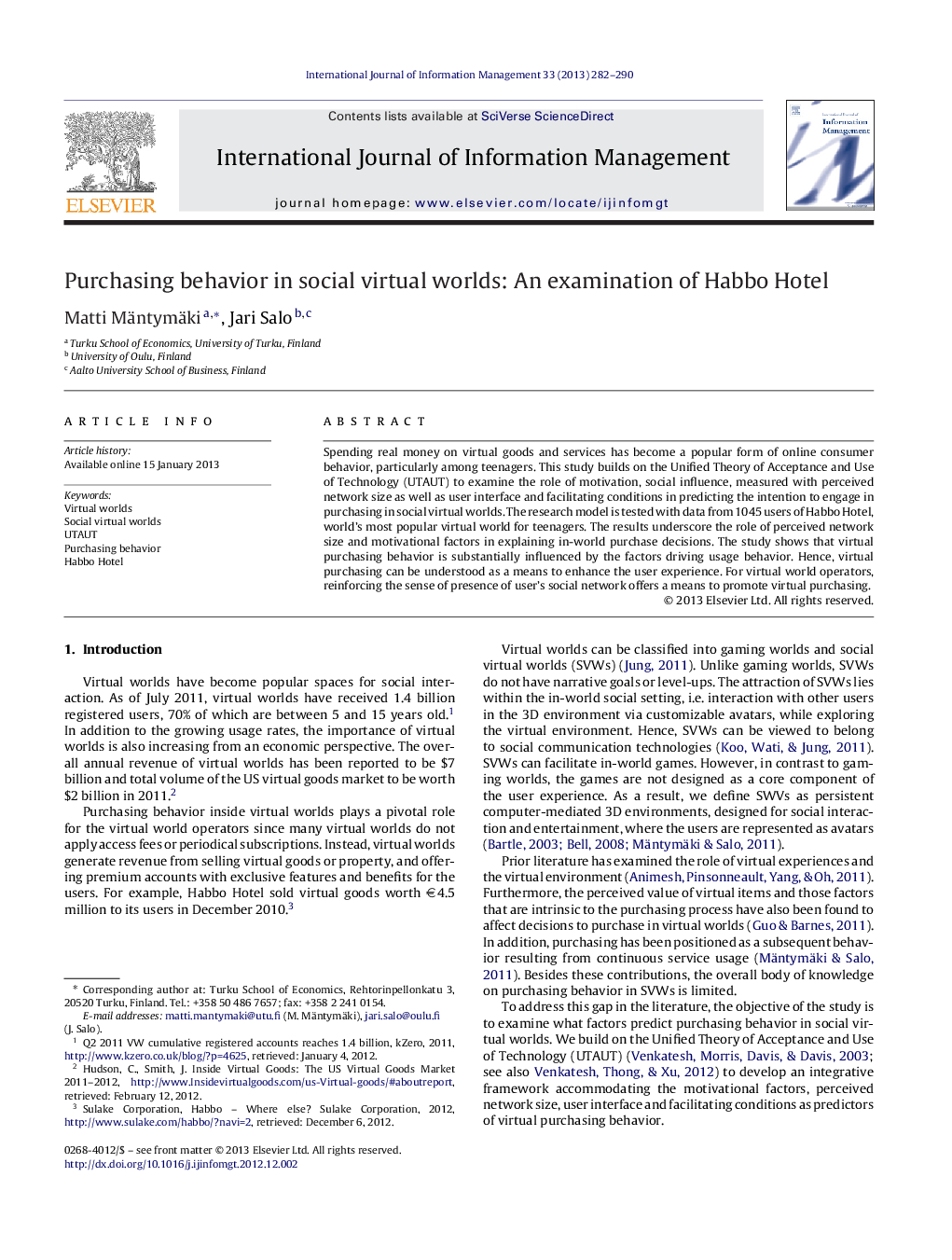| Article ID | Journal | Published Year | Pages | File Type |
|---|---|---|---|---|
| 1025749 | International Journal of Information Management | 2013 | 9 Pages |
Spending real money on virtual goods and services has become a popular form of online consumer behavior, particularly among teenagers. This study builds on the Unified Theory of Acceptance and Use of Technology (UTAUT) to examine the role of motivation, social influence, measured with perceived network size as well as user interface and facilitating conditions in predicting the intention to engage in purchasing in social virtual worlds. The research model is tested with data from 1045 users of Habbo Hotel, world's most popular virtual world for teenagers. The results underscore the role of perceived network size and motivational factors in explaining in-world purchase decisions. The study shows that virtual purchasing behavior is substantially influenced by the factors driving usage behavior. Hence, virtual purchasing can be understood as a means to enhance the user experience. For virtual world operators, reinforcing the sense of presence of user's social network offers a means to promote virtual purchasing.
► Millions of teenagers engage in purchasing goods and services in virtual worlds. ► Perceived network externalities are the primary predictor of virtual purchasing. ► Virtual items and services are a means to elevate user experience in virtual worlds.
